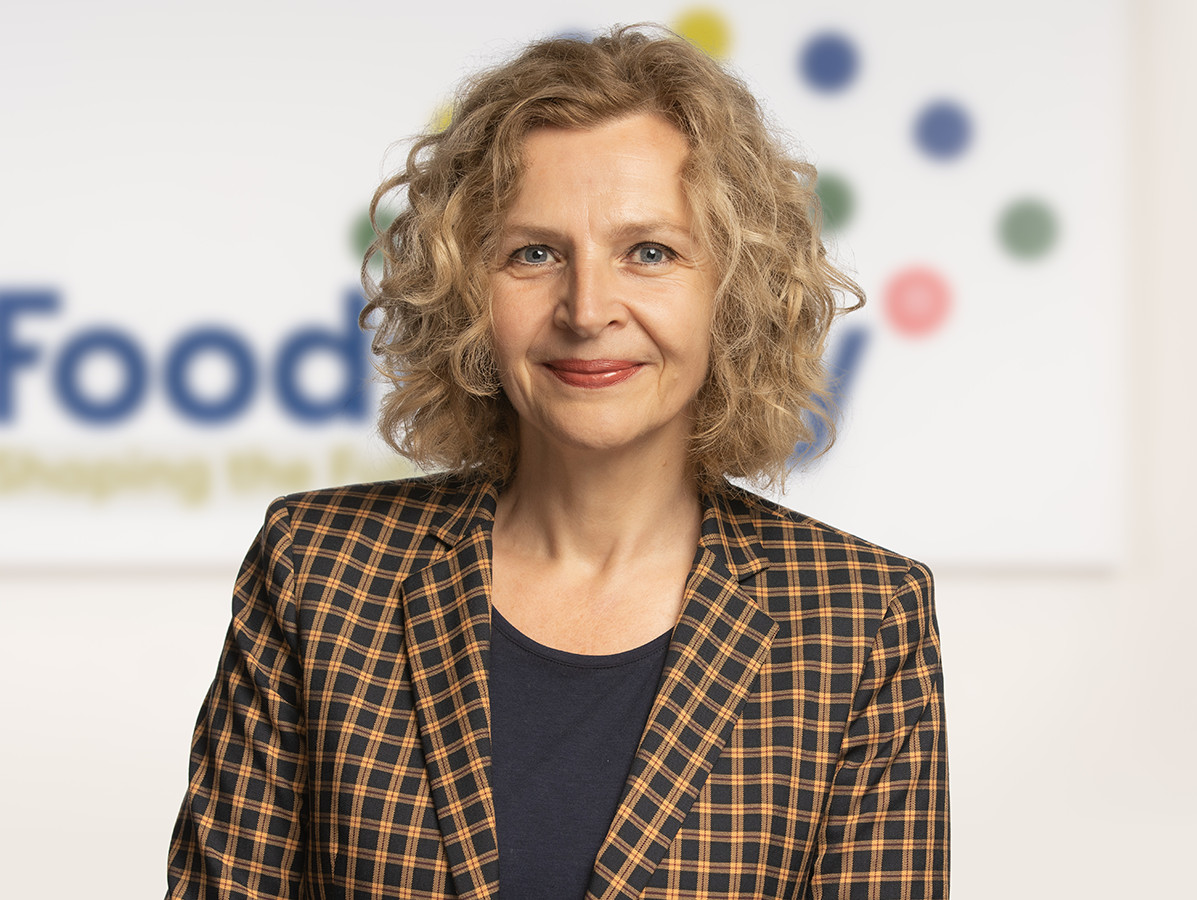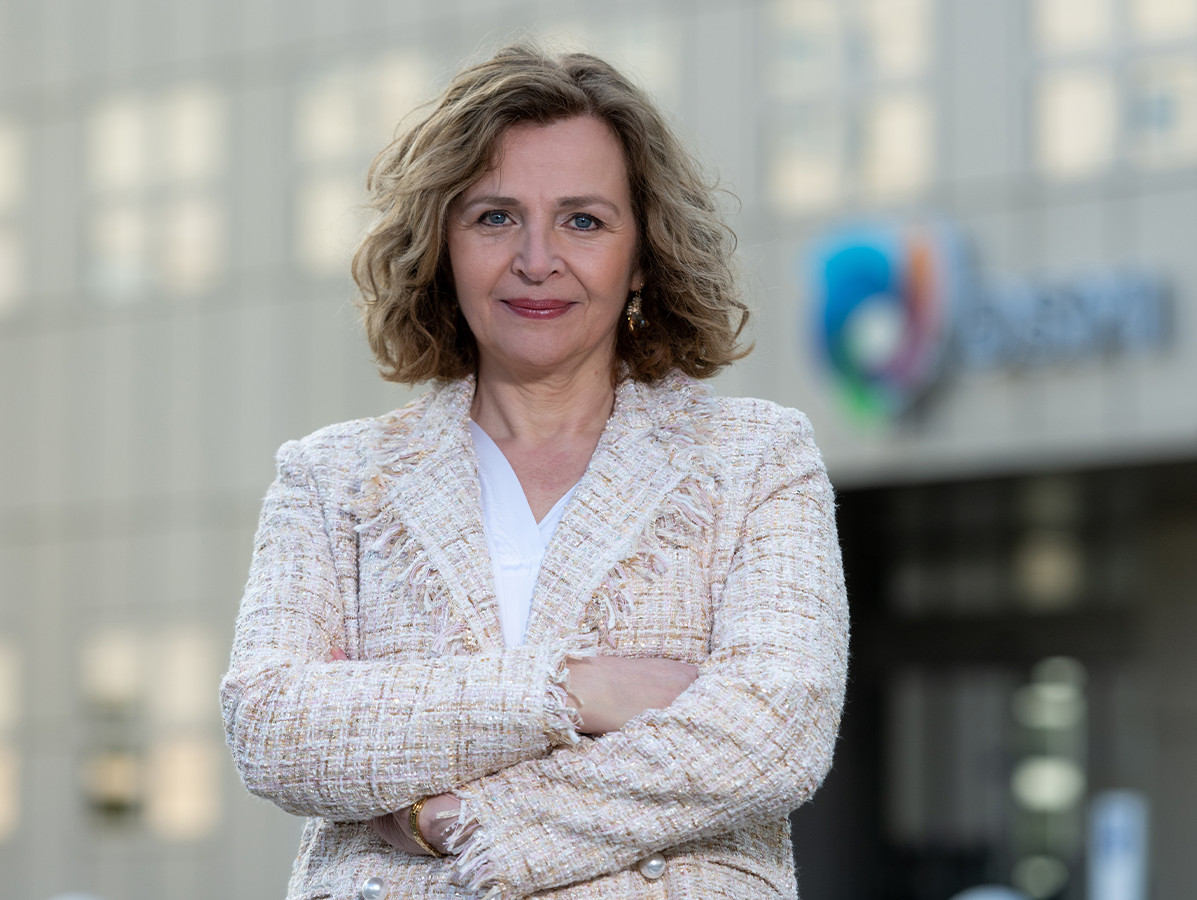
As Minister of Health, Welfare and Sport, she already had the theme healthy food high on the agenda. Now that she is chairmen of the board of Foodvalley, Edith Schippers wants to increase the power of innovative, Dutch food companies on an international level. “We are not going for tampering in the margins.”
The term ‘increasing impact’ is often used when Edith Schippers explains Foodvalley’s mission. The organisation’s aspirations go far beyond its borders. “Our roots lie in Wageningen, but we are of national significance and we have international ambitions”, she says. Sixteen years ago, Foodvalley was established to contribute to the solution of food issues. As of this year, the organisation has a new director (Marjolein Brasz) and a new board, of which Schippers is chairman. She tells Vakblad Voedingsindustrie about those international ambitions, the associated strategy and how important it is to make the healthy choice tasty and accessible.
“We are facing major food issues. Obesity is a growing problem, not only in the Western world but also in developing countries. And hunger and malnutrition will increase due to the rapidly growing world population. Globally, we keep running into the limits of what the earth can supply in terms of raw materials and water. Exhaustion, salinisation and desiccation are lurking. We need to focus on how we can use new smart technologies intelligently to provide the world population sufficient, healthy and tasty food that’s produced sustainably. Foodvalely’s mission is to increase impact of these technologies. We really want to get thing off the ground: no tampering on the margins. For now, we are focusing on three themes: the protein transition, circular agriculture and nutrition and health.”
“With Wageningen University and Research, large (research laboratories of) multinationals, small and medium-sized enterprises, many start-ups and scale-ups and various governments supporting this, Foodvalley has a sloid foundation. The ecosystem we have here is internationally acclaimed- we are frontrunners. In order to fulfil our mission, we need to further develop this ecosystem nationally and internationally and accelerate that expansion. That means, on the one hand, broadening it to new technologies and, on the other hand, broadening it to companies that can actually provide these agri-food start-ups and scale-ups with equipment and machinery, scale-up opportunities and expertise, for example in the area of patents and entrepreneurships. Such an ecosystem attracts talent an creates business activity- small businesses become large, crucial for the earnings model of the Netherlands.”

©Ermindo Armino/DSM
“If you want to increase that impact, you need to identify and value promising innovations at an early stage. We spot these initiatives and provide the people behind them with the right contacts. So Foodvalley acts, among other things, as initiator and matchmaker. We make sure that the missing links are filled in and look for solutions for the hick-ups. And if there is a relevant development going on at a university in China, we make the connection with companies here, the approximately 200 members of Foodvalley. These are largely agri-food companies, from SMEs to large corporates such as Unilever, FrieslandCampina, DSM, Upfield and Kraft Heinz. Our members also include start-ups and knowledge suppliers. We have a strong network of organisations we work with, including Regiofoodvalley, development company Oost NL and knowledge institutions such as WUR- a very important cooperation partner for us. But also companies where there is knowledge, market intelligence- in short: everything needed to be successful as an agri-food company. Our members are mainly based in the Netherlands and elsewhere in 20 countries, including Japan, India, Australia, China, Belgium, Spain and Sweden. Where international knowledge comes together, there is a tremendous acceleration in the development of technology and in the emergence of companies that can contribute to solving the problems that exist.”
“Indeed, the ecosystem around the protein shift is already quite advanced in the Netherlands. But we see that the impact of those innovations is often too small and too regional. What’s more, too much private money and taxpayers’ money goes to all those different initiatives, only a few of which make it. We are making an inventory of those innovations and linking them together in order- there it is again- to increase their impact. Another problem with protein transition is that there is a lack of production capacity for protein applications. We are mapping out existing production facilities and technological infrastructure on the Protein Facility Map, which can be found on our website. On this map you will find the production possibilities for pilots up to large-scale production of vegetable ingredients, semi-manufactured products and consumer products.”

©wk1003mike/shutterstock.com
“I know from my ministry how difficult it is to make the healthy choice the easy and tasty one. To promote this, I launched the ‘Everything is Health’ programme ah the time, to which hundreds of parties have committed themselves. I signed a covenant with the food industry, the Agreement on Improving Product Composition. In this agreement, industry, supermarkets, the hotel and catering industry and the catering industry committed themselves to reducing salt, saturated fats and calories in products. But such a reformulation, i.e. the adjustment of the product composition, is a complex and lengthy process. After all, a salt-free soup may be healthier, but if consumers don't buy it after one try, because they don't like it, you are out of business. R&D departments in the industry are therefore working hard on this.
"Another way of stimulating healthy eating is through the use of new technologies. One of the nominees for the Foodvalley Champions, an annual award for companies with high-impact innovation in agri-food, was recently put in the spotlight during the Foodvalley Summits, for example. Verdify develops software in which artificial intelligence automatically adapts existing recipes to dietary preferences or allergies. We support such initiatives by offering them a platform and linking them to people and organisations that can make such an idea grow. By the way, this innovation is a precursor to personalised food; an area that is still being explored, but which offers enormous opportunities. In the future, technology must make it clear quickly and easily what is healthy for the individual consumer. Because what is good for my body does not necessarily have to be healthy for someone else.
"It is clear that cooperation is a prerequisite for achieving Foodvalley's mission. So we would like to come into contact with parties throughout the food chain who can play a role in the development of Foodvalley's eco-system. These could include health insurance companies, retailers, the hospitality industry and companies developing new technologies. We are open to all those who share the same goal. We desperately need each other.
Edith Schippers
In 2003, Edith Schippers (1964) joined the Lower House of Parliament (VVD), where she took over the public health portfolio. From 2010 to 2017 she was Minister of Health, Welfare and Sport. Nowadays, she is President of DSM Nederland in daily life. Last April, Schippers was appointed chairman of the board of Foodvalley. She holds that position in a personal capacity.
Source: Vakblad Voedingsindustrie 2020